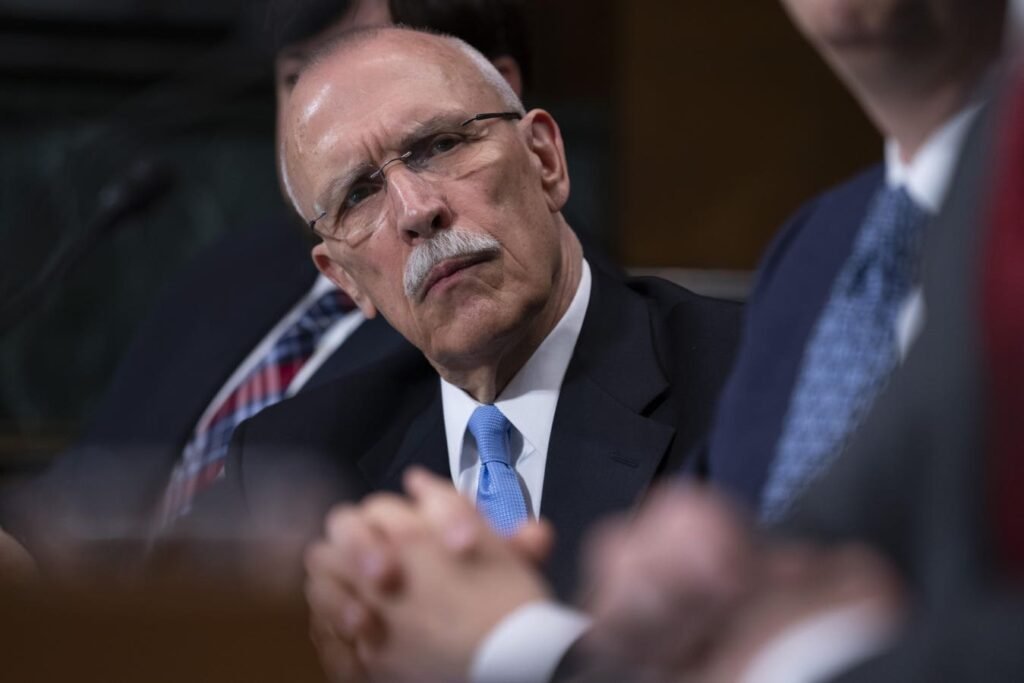David Mitchell, president and founder of Patients for Affordable Drugs, listens during a Senate … More
The Senate Judiciary Committee advanced six bills last week addressing prescription drug pricing, with a focus on patent reform. Despite bipartisan support, drug patent reform has faced delays in the past. Will the 119th Congress finally take action this time? The urgency among constituents and policymakers suggests a possibility, but past failures to pass reforms indicate uncertainty.
Congress currently holds a lower approval rating (29%) compared to the executive branch, potentially due to perceived inaction on key issues. Healthcare, particularly prescription drug policy, has seen repeated delays in reforms, such as those related to Pharmacy Benefit Managers and drug patents. The lack of progress echoes the sentiment of “still waiting” from the Talking Heads song, Cross-eyed and Painless. While lobbyists may play a role, institutional inertia within the Senate and House also contributes to the stagnation.
Despite partisan divides, there is broad consensus on the need for pharmaceutical patent reform. High prices of brand-name drugs in the U.S. are partly attributed to tactics used by drug manufacturers to maintain their market dominance and hinder competition from generics and biosimilars.
Key figures from both political parties, including former FDA Commissioner Scott Gottlieb and former FTC Commissioner Lina Khan, have called for an end to practices that obstruct generic and biosimilar products. David Mitchell, founder of Patients For Affordable Drugs NOW, has testified against anticompetitive behavior by drug companies at Senate Judiciary Committee hearings.
The Initiative for Medicines, Access & Knowledge, a non-profit advocating for drug patent reform, highlights the detrimental impact of excessive patent use on medication prices for American patients.
Data from Bloomberg News reveals that a significant percentage of new drug patents are for existing medications, with many top-selling drugs receiving extended patent protections. This trend contributes to inflated drug costs, as discussed in a recent STAT News piece.
The pharmaceutical industry argues that patent reform is unnecessary, citing the prevalence of generics in the market. However, companies often prolong their monopolies through tactics like “evergreening,” where minor changes to drugs extend patent exclusivity.
Bipartisan efforts in Congress aim to address perceived abuses of the patent system, promoting competition and earlier entry for generics and biosimilars. Recent bills advanced by the Senate Judiciary Committee target anti-competitive practices and seek to revamp the patent system.
Legislation addressing “patent thickets” and “product hopping” reflects a push for a more competitive market. Additional bills aim to limit pay-for-delay deals and prevent obstacles to generic drug approvals.
While past attempts at drug patent reform have faltered, the current momentum in Congress suggests a potential for meaningful change. The reintroduction of bills and committee votes indicate a renewed focus on addressing concerns surrounding drug pricing and patent practices.
As Congress moves forward with these initiatives, the impact of potential reforms on prescription drug pricing and market competition remains to be seen. Will this time be different? Only time will tell.


